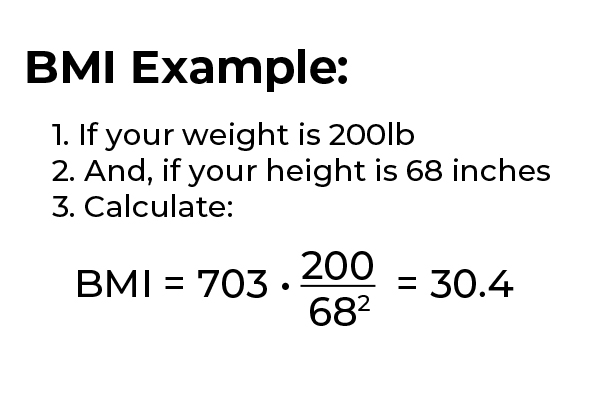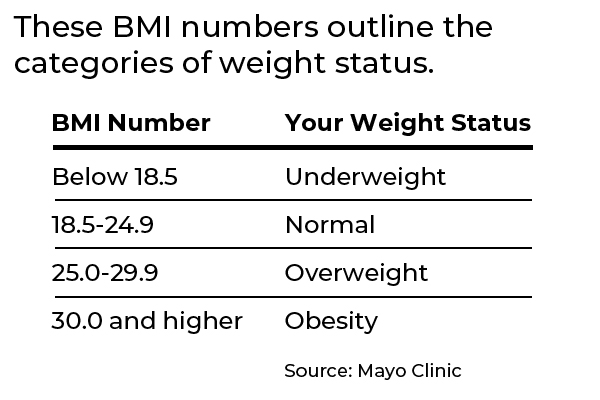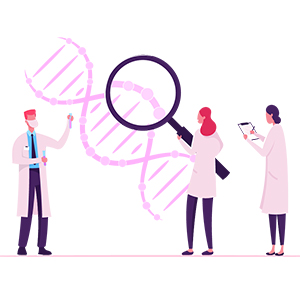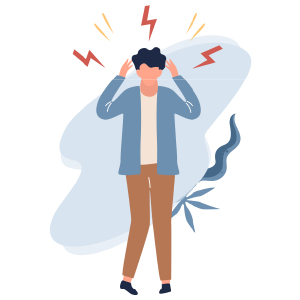The Facts about
Weight Management
Achieving and maintaining a healthier weight is not easy
It is no secret that weight loss can be very hard work. And maintaining weight loss can be equally challenging. If both were easy, there would be far fewer people across the globe struggling with weight loss and weight management. On the contrary, millions and millions of people across the globe are overweight.
While the general principle for weight loss seems straightforward — reduce calorie intake from food and beverages and burn more calories than you take in with physical and daily activities — we all know it is not that simple.
We also know that millions of people in Western, developed societies consume far too many calories from fast foods, snacks, processed foods, and high-calorie beverages such as sodas, fruit drinks, and alcohol. A lot of us also sit at sedentary jobs, drive instead of walk, order online instead of walking around to shop, and spend a lot of time with a remote control while drinking and eating as a form of relaxation. With all these modern habits, it is easy to understand why so many people struggle with weight.
In addition to these lifestyle challenges, there are many complex medical reasons why people have difficulty losing weight and keeping it off. Obesity can result from many variables, including heredity, physiological, and environmental factors.
LifeStyle Medical Centers is here to help with all of these challenges. We are committed to helping you lose weight with a sustainable, effective program that includes a team of experienced experts, digital tools to track your daily efforts and progress, medications when needed, and on-going support.
Let’s start with understanding why maintaining a healthy weight is so important.

What is obesity and why is excessive weight so dangerous to one’s health?
Obesity is a complex medical condition that increases the risk of other serious diseases and health problems, including:
- Type 2 diabetes. Obesity can impact the way your body uses insulin to control your blood sugar levels. Obesity raises the risk of insulin resistance. Uncontrolled diabetes can be life-threatening.
- Cancers. Obesity may increase the risk of cancer of the uterus, cervix, endometrium, ovary, breast, colon, rectum, esophagus, liver, gallbladder, pancreas, kidney and prostate.
- Heart disease and strokes. Obesity increases the likelihood of high bloodpressure and abnormal cholesterol levels. Both are risk factors for heart disease and strokes.
- Digestive problems. Obesity increases the likelihood of developing liver problems, gallbladder diseases and heartburn.
- Sleep apnea. Obesity increases the likelihood of sleep apnea in which breathing repeatedly stops and starts during sleep.
- Osteoarthritis. Obesity can increase inflammation throughout the body along with increased stress placed on weight-bearing joints. Both of these conditions can lead to complications such as osteoarthritis.
- Severe COVID-19 symptoms. Obesity increases the likelihood of developing severe COVID symptoms if you become infected.
The good news is that even modest weight loss of 5% (10 lbs in a 200 lb) can prevent or improve the health risks associated with excessive weight. With a healthier diet, increased physical activity, and lifestyle changes, you can lose weight and keep it off. Prescription medications and weight-loss surgery such as bariatric surgery are additional tools used for treating obesity.
A 12-Week, focused push to achieve weight loss momentum
At LifeStyle Medical Centers we offer a 12-Week Intensive Weight Management Program to achieve weight loss momentum and long-term commitment to weight maintenance.
Our data shows that weekly visits with a provider result in greater weight loss. Additionally, studies suggest that early “wins” in losing weight can translate into improved motivation and a greater chance of long-term success. Our intensive 12-week Weight Management Program leverages these insights to provide a structured, evidence-based program that’s designed to deliver results. Here’s how it works:
Intensive
- A focused, 12-week program
- Weekly visits with a registered dietitian
- Structured and individualized meal plan
- Emphasis on healthy habits
- Nutrition education tailored to your specific needs
Commitment-based
- Patients commit to an initial goal of at least 3% body weight loss by week 5,
and at least 5% by week 12. - After 12 weeks patients can continue to focus on weight loss, or graduate to our custom weight maintenance program to sustain their success.
How do I know if I am obese?
Measuring body mass index (BMI) is often used to diagnose obesity. To calculate BMI, you multiply your weight in pounds by 703, then divide by your height in inches, and then divide again by your height in inches. You can also divide your weight in kilograms by height in meters squared.
For example, let’s say someone is 5’8” and weighs 200 lbs The BMI reading would be 30.4 which would put the person in the obese category.
For most individuals, BMI is a reasonable estimate of your body fat. But because BMI does not directly measure actual body fat, it can be a misleading number for some people such as muscular athletes with little body fat but a high weight due to their muscle mass.
Therefore, healthcare providers will also measure your waistline when calculating your BMI to guide their medical evaluation and recommendations. Weight-related health problems tend to be more common in men with a waist circumference over 40 inches (102 centimeters) and in women with a waist measurement over 35 inches (89 centimeters).



What are the causes of obesity?
Weight gain and obesity occur when your body takes in more calories than it burns through daily activities, including exercise. These excess calories are stored in your body as fat. In addition to calorie intake, your genetic make-up, metabolism, hormone levels, and lifestyle as outlined below impact weight gain.
Family Genetics
Your inherited genes can affect how much fat your body stores and where fat is distributed. Genetics can also play a role in how efficiently, or inefficiently, your body converts food into energy for your cells, how your body burns calories during exercise, how your body regulates your appetite, and how you experience hunger and fullness.
While obesity tends to run in families, one’s genes are usually not the entire reason. Families also usually share similar eating, activity, and exercise habits.

Lifestyle Habits
Family and lifestyle habits that may impact risks for obesity include:
An unhealthy diet. Diets that are high in calories, full of fast food, include high-calorie beverages, large portions, and lack fruits and vegetables contribute greatly to weight gain.
Excess calories from liquids. It is easy to drink lots of calories without feeling full, especially calories from alcohol. Other high-calorie beverages, such as sugary soft drinks and sugary fruit juices can also contribute to considerable weight gain.
Inactivity. A sedentary lifestyle can result in more calories consumed than are burned through exercise and daily activities. The number of hours one spends in front of screens is highly correlated with weight gain.

Disease and Medications
With some individuals, obesity can be traced to a particular medical condition, such as Cushing syndrome, Prader-Willi syndrome or other conditions such as arthritis which can lead to decreased physical activity.
Some medications, such as antidepressants, anti-seizure, steroids, beta-blockers, diabetes medications, and antipsychotic medications can lead to weight gain if changes in diet and exercise are not made to offset the side effects of the medication.

Aging
While obesity can occur at any age, hormonal changes and the loss of muscle mass with aging can lead to weight gain.
Lower muscle mass typically leads to a decrease in metabolism which in turn reduces the need for the same calorie intake you had at a younger age. If you do not control your calorie intake or increase your physical activity as you age, you are very likely to gain weight as you age.

Socioeconomic Factors
Avoiding weight gain and obesity is difficult if you do not have safe areas to exercise or sidewalks to walk on, people committed to walking and exercising with you, and access to a bike or parks.
And if you were never taught about nutrition and the healthiest ways to prepare meals or have family and friends who are obese, then you are more at risk for obesity.

Pregnancy
Some women find it particularly hard to lose the weight they gained during pregnancy. This struggle can lead to obesity.

Stress and Depression
Stress and anxiety can contribute to the risk of obesity as many people reach for high caloric foods, consume more when they are stressed or depressed, have poor sleeping habits, or self medicate with alcohol, smoking, or sweets.

Smoking
Quitting smoking (which is very important) is often associated with weight gain. Food is often used to cope with nicotine withdrawal. For some individuals, this weight gain can lead to obesity. Having a coping program in place while quitting smoking can make all the difference.

Microbiome
Your gut bacteria are affected by what you eat and can contribute to weight gain or difficulty losing unwanted weight.

Inadequate Sleep
Not getting enough, or getting too much, sleep can cause changes in your hormones that can increase your appetite. Poor sleep can cause cravings for food high in carbohydrates.
The good news about many of these risk factors is that they can be counteracted by a healthy diet, physical activity, an enjoyable exercise program, and other daily behavioral changes.

When to seek help
If you are at all concerned about your weight or weight-related health problems, call us at LifeStyle Medical Centers. We can evaluate your health risks and discuss your weight-loss options and get you on the right path to a healthier you in a very short time.
Sources:
- Centers for Disease Control and Prevention, https://www.cdc.gov/.
- Mayo Clinic, https://www.mayoclinic.org/.
- Johns Hopkins Medicine, https://www.hopkinsmedicine.org/health.
- Cleveland Clinic, https://my.clevelandclinic.org/health/diseases.
